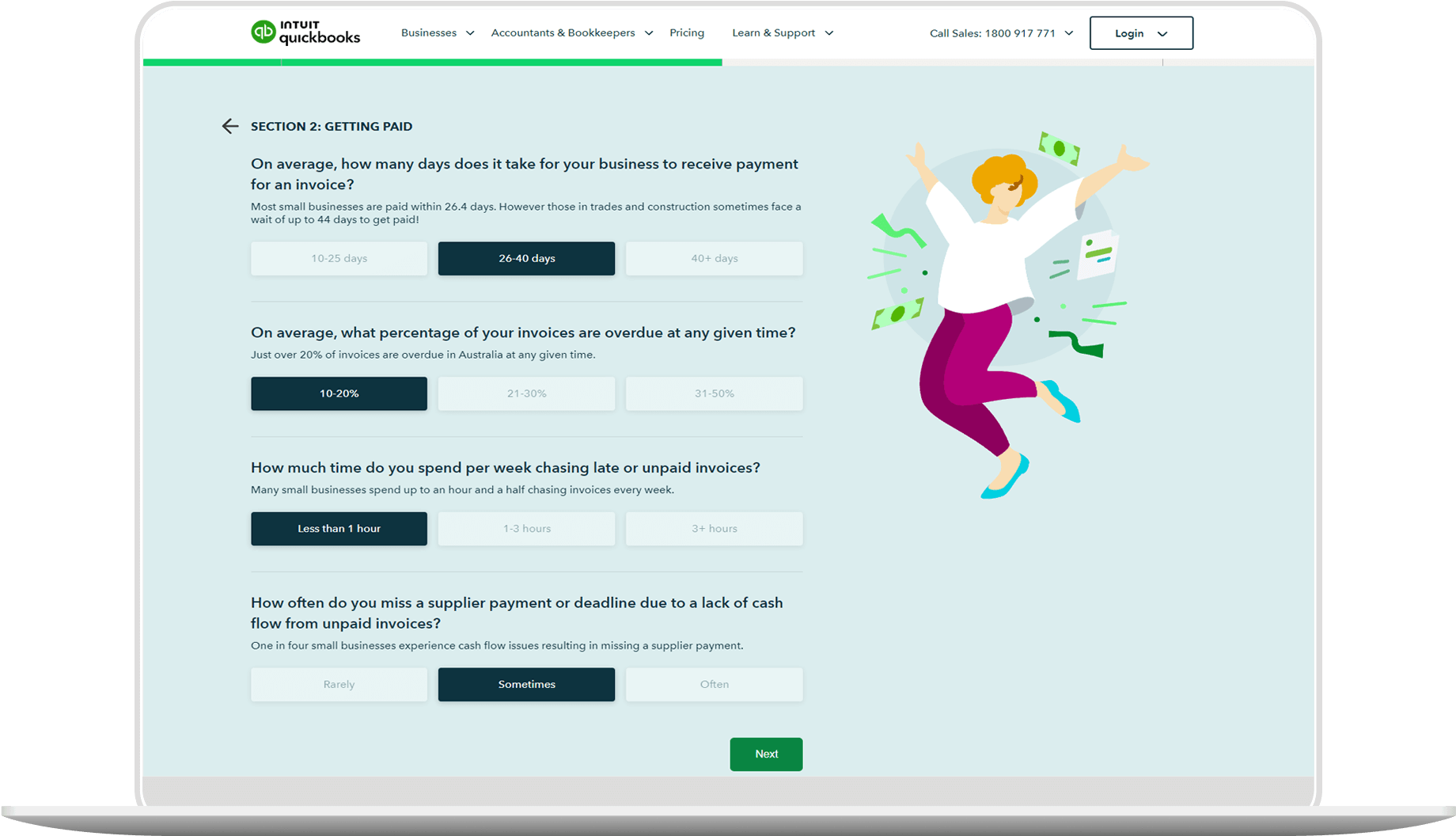Tax deductions for doctors
There is a long list of potential tax deductions for doctors. Keep track of your expenses using accounting software like QuickBooks to make filing your end of financial year (EOFY) return easier.
1. Self-education expenses
Any ongoing education you undertake as part of your role as a medical professional counts as a tax deduction. Course fees and materials are both deductible, but only if the course relates directly to your current position. However, if you want to change career paths, such as transitioning from a nurse to a surgeon, you may not be able to claim it as a deduction.
If your course is eligible for a deduction, you can claim expenses such as the course fees, textbooks, journals and other similar items. Additionally, you may also be able to claim depreciating assets such as a laptop that was used for the work-related study if it costs more than $300.
It is important to note that you can’t claim deductions for repayment on study loans like the Higher Education Loan Program (HELP), Student Financial Supplement Scheme (SFSS), Student Start-up Loan (SSL) and more.
2. Car and travel expenses
You can claim some travel expenses as tax deductions, whether you use a private vehicle or public transport. This can also include costs like parking and tolls.
In most circumstances, you can’t claim deductions for trips between your home and office, like your morning commute to work and your journey home. However, you can claim for trips between your clinic and the hospital or other journeys between different workplaces on the same day.
There are times when you may be able to claim travel between your place of work and your medical professional country carrying bulky tools or equipment. To claim the cost of such trips as deductions, you need to meet all the following conditions:
- The tools are essential for your work duties
- The tools are bulky and difficult to transport
- There is no secure place to store them
In terms of longer travel, you can deduct expenses for work trips. However, this does not apply if the work-related trip is an extension of a personal trip, such as attending a conference while on holiday. You can only deduct the amount for the work-related portion of travel as long as that travel expense has not been reimbursed by your employer.
3. Books and journals
You can claim deductions for books, journals and subscriptions to work-related publications. If you claim a book or journal it needs to:
- Cost less than $300
- Not be part of a set where the total set costs more than $300, a set is:
- Where books or journals are interdependent
- Books or journals are designed to be used together
- The publication is marketed as a set
- Be mainly used for work purposes
- Not be one of a number of identical or substantially identical items that together cost more than $300
You can also claim work-related publication subscriptions for which you have paid for more than one year in advance. For this, you need to divide the subscription cost over the whole subscription period equally.
4. Medical registrations
If you are associated with any medical body like the Australian Medical Association, the fees for membership are a tax-deductible expense.
5. Uniform expenses
Depending on your specialty, you may need to buy uniforms, including lab coats and other surgical gear. The cost of purchasing, hiring, fixing, or cleaning uniforms can be tax deductible.
However, you cannot deduct expenses for ordinary clothing you wear to work, including items you wear under your doctor’s coat.
6. Professional indemnity insurance
As a medical professional, you may be able to claim a tax deduction for professional indemnity insurance if it relates to your work activities.
7. Equipment and supplies
Similar to uniforms, you can claim deductions for any tools you need for your job. This includes a briefcase to transport equipment and patient files or more specialised medical equipment like stethoscopes and syringes. It is important to note that you cannot claim a deduction for equipment if it is provided by your employer or a third party.
8. Repair of equipment and tools
You can also claim a deduction on the cost to repair any tool you use for work-related purposes.
9. Watches and timepieces
In most circumstances, you can’t claim a deduction for watches even if you use them at work. However, you can claim a deduction if the watch has a special characteristic that is required for work, such as a nurse’s fob watch.
In some circumstances, you may be able to claim a smartwatch, but only if it has a function that is essential for your work. If this is the case, you need to maintain a record of your use of the watch for work-related purposes.
10. Home office expenses
If you work from home frequently, you can deduct other expenses from your tax bill. This includes basic office equipment, such as desks and chairs, alongside stationary, electronics, and more.
You can also deduct bills such as lighting, air conditioning, and internet usage, but you must calculate exactly how much is used for the home office.
In some cases, your phone bill may also fall under this category. A work phone can be tax-deductible, but you can also deduct some of the expenses from a personal phone. Again, it can only be the amount you spend on work-related usage.




















